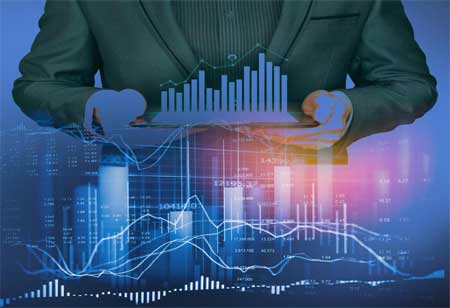THANK YOU FOR SUBSCRIBING
Trends Reshaping the Internet of Things Technology
The Internet of Things (IoT), generally, can be considered to be the network of physical things that are fixed with software, sensors, and different technologies to swap and connect data with other systems and devices over the web.

By
Apac CIOOutlook | Monday, December 18, 2023
Stay ahead of the industry with exclusive feature stories on the top companies, expert insights and the latest news delivered straight to your inbox. Subscribe today.
With digitisation peaking among businesses and almost every step of an individual’s need, the Internet of things is likely evolving for a robust technology-driven space.
FREMONT, CA: The Internet of Things (IoT), generally, can be considered to be the network of physical things that are fixed with software, sensors, and different technologies to swap and connect data with other systems and devices over the web. The devices may range from everyday household objects to modern industrial tools.
Digitisation has likely taken over businesses and every other possible sector all over the world as a result of the increased accessibility of cost-effective resources. Whereas IoT plays a critical role in the digitisation and technology-driven space, it is quickly becoming a requirement for organisations seeking to thrive exponentially. However, the Internet of Things is likely to be expanding and evolving in recent times, opening up new opportunities.
One such testamental approach is the accelerated adoption of blockchain technology, which facilitates acute data security in the Internet of Things and its affiliated devices. It enables a well-established interaction between various network nodes, ensuring safe and accurate record-keeping practices. Therefore, blockchain undoubtedly emerges as an effective transition into IoT applications, often distributed by nature.
Smart cities have a massive impact on technology infrastructure, particularly when it comes to the Internet of Things. Hence, varied governmental institutions have been introducing and developing IoT technology projects in recent years to upscale cities with seamless advancements. That is, integrated and intelligent solutions are likely implemented via varied data for effective addressing of issues like citizen safety, energy utilisation, traffic congestion, and sustainable development.
Similarly, 5G technology has emerged as the most advanced and new-age wireless technology, prompting a paradigm shift in technological growth accordingly. As a foundation for delivering the full potential of IoT, 5G technology has emerged as a breakthrough advancement in recent times, concerning the Internet of Things and robust connectivity. Adopting 5G network services enables a lower latency rate, network slicing, real-time data processing, and extensive coverage.
Along with this, the Internet of Things has a greater potential for addressing global challenges such as traffic and blockage issues. As a result, enterprises on a large scale deploy IoT-powered arrangements and solutions into traffic systems and vehicles for the comprehensive sketching of smart traffic networks. It aims to reduce unnecessary traffic and congestion.
Artificial Intelligence (AI) and the Internet of Things are highly individualised per their distinct capabilities; when merged, they facilitate meticulous commercial solutions. For instance, AI algorithms often seek out limited data to deliver reliable results in the business space. Therefore, deploying IoT and AI into organisational processes aids in automating integrated processes, in addition to reducing operational costs and downtime, while accelerating the productivity scale for efficient predictive maintenance.





